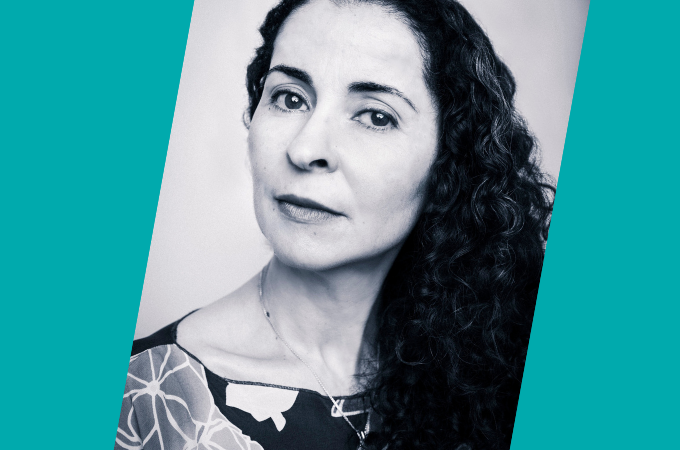
Moroccan author Leila Lalami published a guest essay titled “The Real Meaning of ‘Never Forget’” for the New York Times’ memorial of the 9/11 terrorist attacks. This years 20th anniversary of the World Trade Center and Pentagon attacks come at the same time the U.S. Administration is pulling out of Afghanistan, ending the 20 year long War on Terrorism there. Lalami sharply observes this parallel and highlights some major tensions with how Americans remember atrocities that happen on national soil versus the rest of the world.
The beginning and end of her essay, Lalami directs us to the story of a young man, Afghan football player Zaki Anwari, who fell to his death trying to hold on to a plane leaving Kabul during the beginning of Western countries’ evacuations. She connects the images and videos of the young man’s fall to famous images of the “falling man” from the 2001 U.S. terrorism attack. Having this as an opening and closing emphasizes Lalami’s broad question: what and who are considered victims in the U.S. and who is forgotten or erased?
Lalami’s essay explores “the story America told about itself after Sept. 11” using examples from memorial services and the 9/11 Memorial Museum. She does not criticize these institutions and the process of ongoing grieving, but instead wonders about the “the deaths of some 800,000 people, including 335,000 civilians…and the displacement of an estimated 38 million people” that are not discussed at these services or exhibits.
Another main point of Lalami’s essay considers the way money and greed has been connected to the aftermath of the 9/11 terrorist attacks, stating that “Sept. 11 became a business.” Lalami discusses some of the outcry against the commercialization of Sept. 11, like the recall of a “cheese platter in the shape of the United States, with hearts marking the sites of the terrorist attacks,” but also reports on how big business in war, from private military contractors to the government, used the tragedy to make profit, in the midst of so much human devastation.
In all, Lalami’s call is clear: as U.S. citizens continue to “never forget” the attacks of 9/11, they should also remember the thousands of lives lost and deeply affected by the U.S. government “War on Terrorism”over the past 20 years.
Read an excerpt of the essay.
The story America told about itself after Sept. 11 was one of heroism and resilience in the aftermath of a brutal attack; the invasion of other countries, and the interruption of their political destinies, had no place in it. Even now, 20 years later, the story hasn’t changed. There are no ceremonies to honor the foreigners who died in U.S. wars, no memorials to victims of torture, no museums to house artifacts from hollowed-out buildings or bombed funeral processions, no exhibits on the lessons that ought to be drawn from such spectacular failures.
Laila Lalami was born in Rabat, Morocco and educated in Morocco, Great Britain, and the United States. She has authored four novels, Secret Son, Hope and Other Dangerous Pursuits,The Moor’s Account, and The Other Americans. Her newest book is a work of nonfiction called Conditional Citizens and was published by Pantheon in September 2020. She has been awarded fellowships from the British Council, the Fulbright Program, and the Guggenheim Foundation and is currently a professor of creative writing at the University of California at Riverside. She lives in Los Angeles. Learn more about Lalami here.









COMMENTS -
Reader Interactions